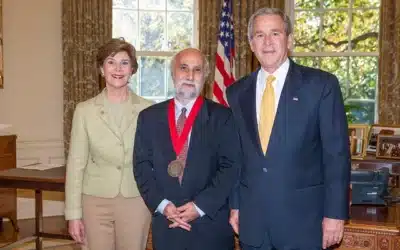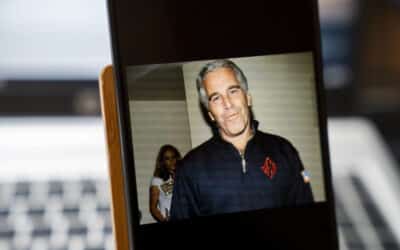Today [January 11] in 1757, it is generally believed Alexander Hamilton was born. As John Adams put it, he was “the bastard brat of a Scottish peddler.” Born out of wedlock on the British isle of Nevis, Hamilton would become one of the most influential political forces of his time.
As a 14-year-old, Hamilton expressed interest in joining a military force to achieve prestige through warfare. “My ambition is prevalent that I contemn the groveling conditions of a clerk,” he wrote. “I shall conclude saying I wish there was a war,” he dreamed. As a young man in St. Croix, he was given sole responsibility of his firm’s property as a shipping clerk when its owner had left. After writing a poem that captivated some of the locals, a contribution was taken to send Hamilton to college in the British colonies.
After joining the Continental Army, Hamilton served as Washington’s aide-de-camp, where he befriended the general. Even as the war raged on, he scolded the lack of power in Congress. A chief organizer of the Annapolis Convention of 1786, Hamilton’s efforts to empower the central government proved fruitless. After leading a bayonet charge at night during the Battle of Yorktown, Hamilton achieved the fame he desired.
In New York, he studied law independently, became a lawyer, and defended British loyalists whose property was subjected to New York’s confiscation laws. In the case of Rutgers v. Waddington, he won a momentous case that voided a controversial act allowing confiscation.
As his notoriety grew, Hamilton involved himself in New York politics. Elected to New York’s state assembly, he led a faction of politicians against the popular New York governor, George Clinton, whose vision for the state ran contrary to Hamilton’s aims. After playing a lead role in organizing the relatively unsuccessful Annapolis Convention of 1786, he was selected as one of three delegates to the Philadelphia Convention of 1787, along with Clintonites Robert Yates and John Lansing.
There, he introduced a plan of government that was reminiscent of British-style monarchy, where an executive would serve for life, appoint one branch of the legislature, and appoint governors for all the states. A highly unpopular plan, no one was receptive to Hamilton’s recommendation. Madison responded the next by immediately launching into an attack against the New Jersey Plan, ignoring Hamilton’s counterpart entirely.
Taking the lead role in pitching the Constitution in New York’s Poughkeepsie convention, Hamilton described the Constitution as a framework that preserved the federal orientation of the union. Hamilton insisted that the “laws of congress are restricted to a certain sphere, and when they depart from this sphere, they are no longer supreme or binding.” Hamilton insisted that the states were integral to the federal system, adding that “the states have certain independent powers, in which their laws are supreme.” At one point, Hamilton even threatened that New York City would secede from the state of New York and ratify as an independent entity if the state at large refused to endorse the plan.
After his state ratified with a list of preconditions and the general government was formed, Hamilton reached his zenith of power. After Robert Morris declined Washington’s offer to serve as treasury secretary, Washington selected Hamilton to the office. Therein, he developed his own economic platform, calling for the general government to assume all of the state debts, the implementation of a national bank, a highly protectionist tariff, and a system of “bounties,” monetary awards to domestic companies.
Hamilton’s platform was highly controversial, inspiring the emergence of the first minority political party of the United States, the Republicans, which generally argued that most of Hamilton’s proposals were antithetical to the assurances made by the Federalists during the ratification struggle, wholly unrepublican, and unconstitutional.
According to Jefferson’s account, he once stated the belief that Julius Caesar was the greatest man who ever lived.
After being discredited in a highly publicized affair with a married woman, and amidst accusations that he had corruptly used the national bank as cover his deeds, Hamilton’s political reputation was ruined. Taking the defeat of his father in law by Aaron Burr as a personal affront, Hamilton famously engaged in a duel with Burr, his political arch-nemesis. He was shot by Burr, and died just over a day later.
In Compact of the Republic, I devoted a chapter to the argument that the post-ratification deeds of Alexander Hamilton and his ideological compatriot, John Marshall, effectively undermined the originally ratified version of the Constitution. A nationalist ideologue, Hamilton’s post-ratification assertion that the Constitution suddenly allowed for implied powers outside of the enumerated spectrum made him a scandalous figure.
George Will once famously wrote that “we honor Jefferson, but live in Hamilton’s world.” There is much truth to this. Despite his polarizing qualities, there are few Americans that have left such a lasting impression on the United States. His vision for political and economic centralization, while challenged at times, has ultimately come to fruition.
This article was originally featured at the Tenth Amendment Center and is republished with permission.































